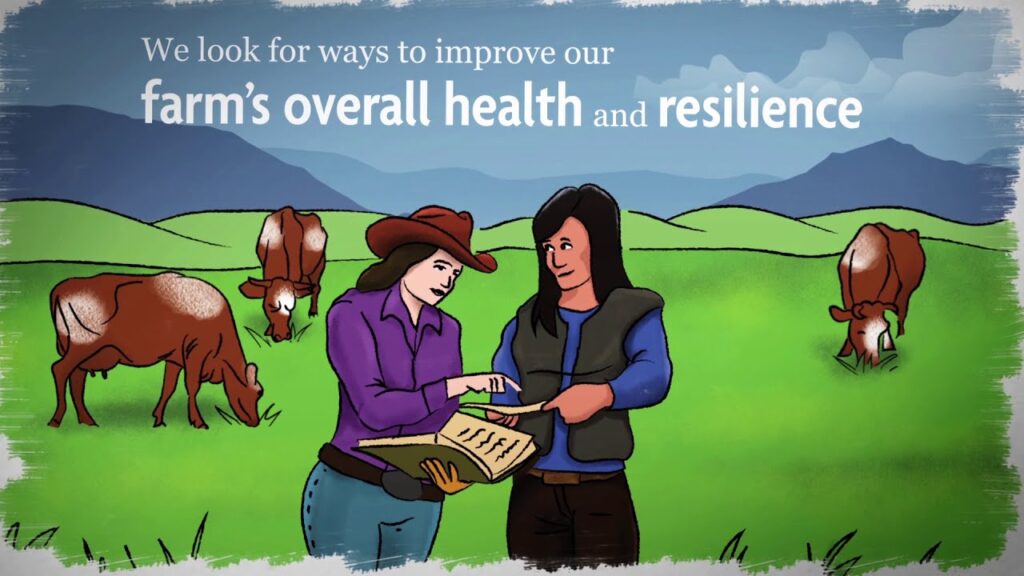Sustainable farming practices are agricultural methods that focus on long-term environmental and economic sustainability. As the world’s population continues to grow, it is becoming increasingly important to prioritize sustainable farming practices in order to meet the demand for food while also protecting our natural resources and promoting economic stability. By adopting sustainable farming practices, farmers can not only improve their own livelihoods but also contribute to a healthier planet for future generations.
The Importance of Sustainable Farming Practices
Sustainable farming practices play a crucial role in achieving food security and protecting the environment. With traditional farming methods, intensive use of chemical fertilizers and pesticides has led to environmental degradation and soil erosion. This has not only depleted natural resources but has also affected the quality and nutritional value of crops. In contrast, sustainable farming practices aim to minimize the negative impact of agriculture on the environment by using natural methods to promote crop growth and maintain soil fertility.
How to Use Sustainable Farming Practices
There are various ways in which farmers can incorporate sustainable farming practices into their operations. Some of these include:
- Crop rotation: Planting different crops in a specific sequence can help replenish nutrients in the soil, prevent soil erosion, and reduce the risk of pests and diseases.
- Cover cropping: Planting cover crops such as legumes and grasses can help improve soil health by adding organic matter and preventing erosion.
- Conservation tillage: This practice involves reducing the amount of tilling or plowing done on the land, which helps to retain soil moisture and reduce erosion.
- Integrated pest management: Instead of relying on harmful pesticides, sustainable farmers use natural techniques such as crop rotation, beneficial insects, and resistant crop varieties to control pests and diseases.
- Water conservation: Sustainable farming practices also involve using efficient irrigation systems, such as drip irrigation, to conserve water and reduce waste.
Examples of Sustainable Farming Practices
One example of sustainable farming practices is agroforestry, where trees are planted alongside agricultural crops. This not only provides shade and wind protection for the crops but also helps to improve soil fertility and reduce erosion. Another example is biodynamic farming, which uses organic and holistic methods to enhance the health and vitality of the entire farm ecosystem.
Sustainable Farming Practices vs Traditional Farming Methods
Compared to traditional farming methods, sustainable farming practices have a number of advantages. These include:
- Reduced environmental impact: With sustainable farming practices, there is minimal use of chemical fertilizers and pesticides, reducing the pollution of waterways and soil.
- Lower costs: Sustainable farming practices such as crop rotation and cover cropping can help reduce input costs for farmers.
- Improved soil health: By using natural methods to maintain soil fertility, sustainable farming practices promote healthier and more nutrient-rich soils.
- Increased biodiversity: Sustainable farming practices encourage the diversity of plants and animals on the farm, promoting a more balanced ecosystem.
- Better crop quality: By avoiding the use of harmful chemicals, sustainable farming practices produce crops that are safer and more nutritious for consumers.
Advice for Implementing Sustainable Farming Practices

For farmers looking to transition to sustainable farming practices, here are some important considerations:
- Start small: Instead of completely overhauling your entire operation, start by implementing one or two sustainable farming practices at a time. This will help you adjust to the changes and see the benefits before expanding further.
- Educate yourself: It’s important to thoroughly research and understand the sustainable farming practices you want to implement. Attend workshops and conferences, reach out to other farmers who have successfully adopted these practices, and consult with experts in the field.
- Consider your specific farm: What works for one farm may not work for another. Consider the climate, soil type, and size of your farm when deciding which sustainable farming practices to adopt.
- Be patient: It takes time for sustainable farming practices to show results. Be patient and give your farm time to adapt to the changes.
- Be open to learning: Sustainable farming is constantly evolving, so be open to new ideas and techniques that may improve your operation.
Frequently Asked Questions

1. Can sustainable farming practices really enhance soil health?
Yes, sustainable farming practices such as crop rotation, cover cropping, and reduced tillage have been proven to improve soil health by increasing organic matter, reducing erosion, and promoting beneficial microorganisms.
2. Are sustainable farming practices more expensive than traditional methods?
While there may be initial costs associated with transitioning to sustainable farming practices, in the long run they can actually save farmers money by reducing input costs and increasing crop yields.
3. Is it possible to achieve high yields with sustainable farming practices?
Yes, with proper management and implementation, sustainable farming practices can result in high yields. In fact, a study by the United Nations found that sustainable farming methods can increase crop yields by up to 79%.
4. Will transitioning to sustainable farming practices affect my income?
Initially, there may be some changes in income as you transition to sustainable farming practices. However, in the long run, these practices can lead to increased profitability through reduced input costs and improved crop quality.
5. Can sustainable farming practices help combat climate change?
Yes, sustainable farming practices can help sequester carbon in the soil, reducing greenhouse gas emissions and mitigating the effects of climate change.
Conclusion: A Brighter Future for Agriculture
Sustainable farming practices are not just beneficial for individual farmers, but also for the planet and society as a whole. By prioritizing environmental and economic sustainability, farmers can play a vital role in feeding the world’s growing population while protecting our natural resources for generations to come. Through education, support, and innovation, we can work towards a more sustainable future for agriculture.

